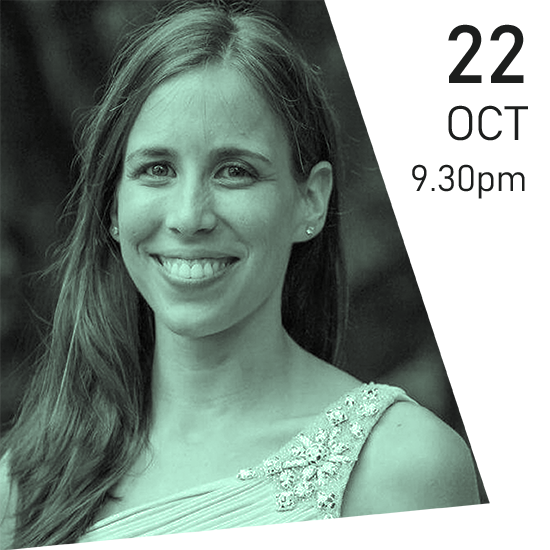 October 22, Tuesday, 9.30 pm
October 22, Tuesday, 9.30 pm
Igreja de São Pedro, Funchal
Sérgio Silva, organ
Mariana Moldão, soprano
The goal of this programme is to illustrate a chronological journey of musical traditions in England and the associated improvisation practices between the sixteenth and twentieth centuries.
Veni, Redemptor gentium appears as a textual adaptation of the Gregorian hymn Hodie nobis gaudia. Intended for Advent time, it has seven stanzas that will be presented as follows, as an essay on alternatim practice: four odd verses sung and three even verses on organ – two composed by Tallis and a third improvised in the same aesthetic.
Due to the enormous success of his lute piece Lachrimæ, Dowland composed Flow My Tears, adding to the previous one a poem in two voices, soprano and bass, now presented in an adaptation for soprano and organ. The popularity of Lachrimæ at the time was such that several composers dedicated their own arrangement to it, like William Byrd in his Pavana Lachrymæ, in which improvisation practices are notorious, with the inclusion of ornamentation and passages of rapid figuration.
Based on the text by Nahum Tate, Tell Me Some Pitying Angel demonstrates Purcell’s genius in musically describing the disconcerting succession of emotional changes in the account of Mary’s distress and despair at the disappearance of Jesus at the age of twelve in the Temple. Written for soprano and basso continuo, the harmonic instruments that accompany the voice – the organ, in this case – can improvise the performance of the figured bass according to the indicated harmony and the emotional character.
The Voluntary genre appears in the liturgical context as a piece performed before and/or after the service in a free and improvised style, according to the organist’s wishes. In Purcell there is a formal, rhythmic and melodic richness, very ornamented in a free and solid counterpoint. Wesley represents the genre in its classical period, with three movements of different nature: a calm, sweet and melodic introduction, a concertante and figurative interlude with the alternance of organ resources and an elaborate fugato with an improvised cadenza in a slow movement towards the conclusion.
Throughout the vast English musical tradition, there have been enormous successes by foreign composers, such as Georg Friedrich Händel. The aria I know that my Redeemer livesth begins the third part of the oratorio The Messiah, right after the famous Halleluja, and is written for soprano, violins and basso continuo. Alongside the free ornamentation and the concluding cadenzas in the singing line, there remains the possibility of improvising the performance of the figured bass while ornamenting the violin line.
Abide with Me is one of the most famous hymns in the Anglican liturgy, having been written Henry Francis Lyte and set to music by William Henry Monk. Intending to demonstrate the practice in the liturgy, two texts are presented, one in Monk’s setting and the other with free improvised harmonisation, alternating with an improvisation in the form of an interlude.
John Ireland is the author of one of the most famous and beautiful Christmas songs – The Holy Boy – likely the most famous piece of his production. Originally composed for solo piano, the seemingly simple melody is greatly enriched with a colourful and complex harmonic structure.
— SÉRGIO SILVA —
Programme
English Hymnal
¬ Veni, Redemptor gentium
alternated with
Thomas Tallis (c.1505-1585)
¬ Two verses on «Veni, Redemptor gentium» *
Sérgio Silva (1981)
¬ Improvisation on «Veni, Redemptor gentium» *
John Dowland (1563-1626)
¬ Flow, my tears
William Byrd (1543-1623)
¬ Pavana Lachrymæ *
Henry Purcell (1659-1695)
¬ Tell me some pitying angel, Z 196
¬ Voluntary em Ré menor in d minor, Z 718 *
Georg Friedrich Haendel (1685-1759)
¬ I know that my Redeemer liveth
(The Messiah, HWV 56)
Samuel Wesley (1766-1837)
¬ Voluntary VII, Op. 6 *
› Largo
› Andante quasi Allegretto
› Moderato
William Henry Monk (1823-1899)
¬ Abide with Me
Sérgio Silva
¬ Improvisation on «Abide with Me» *
John Ireland (1879-1962)
¬ The Holy Boy
* solo organ
